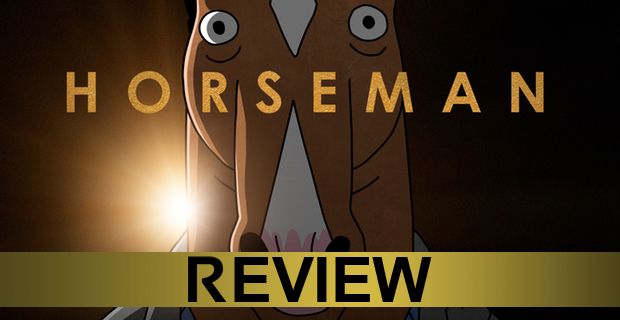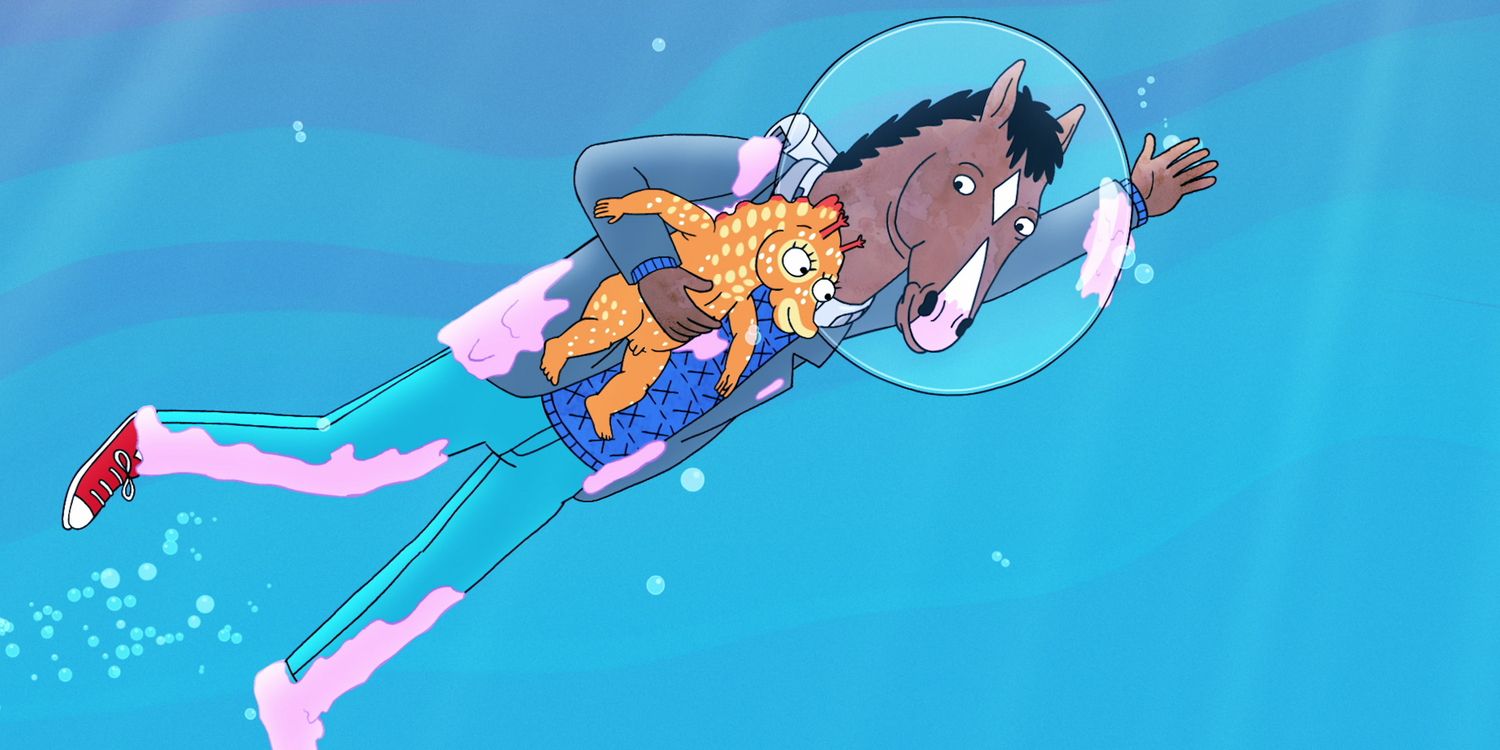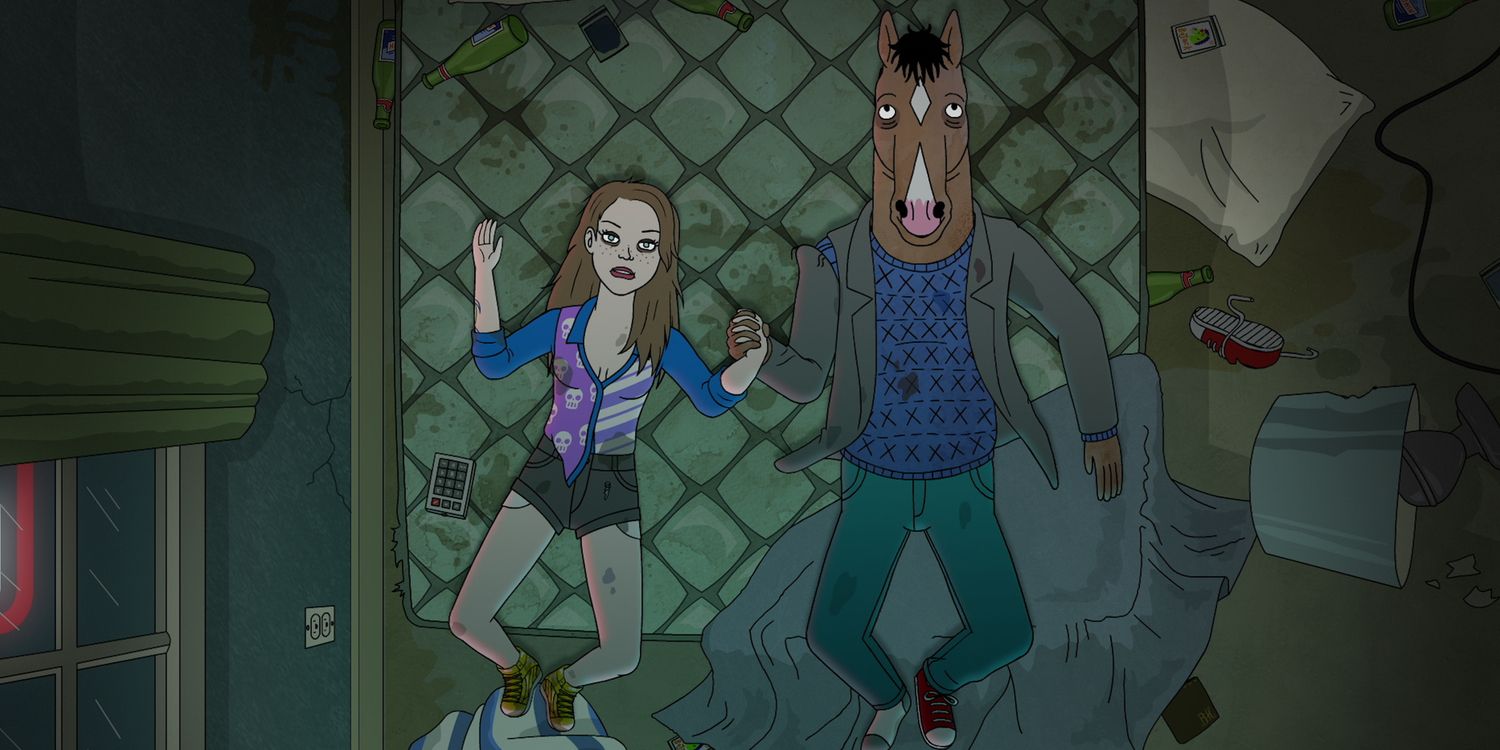[This is a review of BoJack Horseman season 3. There will be SPOILERS.]
-
As the streaming giant's selection of original content continues to grow, it's worth looking at what Netflix has given a green light to and wondering just how much the powers that be know about a particular project before checks start being signed. That's not intended to be a slight in any way on the service's best series, BoJack Horseman, but considering the continued existence of some of its programming, one has to wonder just how far into his pitch about an animated comedy staring an alcoholic anthropomorphic horse going through one hell of an existential crisis creator Raphael Bob-Waksberg got before someone said "Yes." It retroactively makes the decision makers look like geniuses, in part because the show is such an incredibly tough sell, but also because the series has grown by leaps and bounds with each subsequent season.
This time around, BoJack Horseman delivered its finest season yet, and what may be the best single episode of TV this year, with the nearly silent 'Fish Out of Water.' The series is on an impressive run creatively speaking; delivering truly remarkable and consistently inspired output that revisits familiar thematic elements without being a repetitious rehash of previous successes. In a strange case of jokingly self-aware yet totally self-aggrandizing marketing being mostly true – just take a look at the season 3 poster that lists the surnames of certain influential male antiheroes – BoJack echoes many of the same attributes that made The Sopranos and Mad Men (just assume House of Cards is on there as part of some effort to maintain corporate synergy) some of the best television ever made.
The idea of a Hollywood satire that is, again, an animated series about a horseman, being capable of reliably delivering the kind of narrative payload that's this entertaining, insightful, and often devastating is a testament to just how smart the series is. It is also proof of how well the show's writers navigate the fine line between drama and comedy, and how alternating between the two often makes the jokes funnier and the emotional body blows land even harder. Aside from its intelligence – emotional and otherwise – BoJack's greatest attribute may be that it never winks at the audience during moments of sincerity. The show isn't afraid of its unaffected moments; instead it lives them fully, while still allowing the occasional joke to briefly take the stage, as a way to break the tension but also as a way to demonstrate how often the show is working on several levels simultaneously.
The season's 'Fish Out of Water' makes this most evident. The mostly silent, underwater episode demonstrates BoJack's continued efforts to process and understand, let alone communicate, his feelings. By removing things like dialogue – which is reliably great – the show is forced to develop a new visual vocabulary and way of communicating complex emotions, all while putting its character through the usual rigors of being a stranger in a strange land. It is literally a nonverbal re-visitation of one of the show's strongest components: the difficulty its characters have in expressing their true feelings, especially when they may not know what those feelings are on a moment to moment basis. That sort of emotional and communicative isolation becomes the primary conceit of the episode and, from episode 4 on out, it is the primary notion that is explored again and again, until the surprisingly somber events of the last few episodes.
It is there, in 'That's Too Much, Man!' and 'That Went Well,' that BoJack Horseman arrives at a critical juncture in its main character's emotional development. Following the death of Sarah Lynne, BoJack is aware that he needs to change, that continuing to live in the cyclically hollow and superficial life of celebrity is the poison that's killing him just as quickly as the drugs and alcohol. Conversely, the audience is increasingly aware how unlikely it is that he ever really will change, that he ever will find the sense of fulfillment he's been looking for his entire adult life. BoJack will just keep jumping from potentially gratifying venture to gratifying venture, thinking each one will be the place where his quest for happiness might possibly end. What season 3 delivers is a demonstration of how the more emotionally complex his attempts at happiness are, the more crushing it is when the attempt proves fruitless.
But as a series, BoJack Horseman demonstrates a nearly immaculate sense of timing of when to double down on its concepts and when to abandon them – or, at the very least, allow them to simmer in background. Season 3 kicked off with BoJack on the Oscar campaign ahead of Secretariat's release. And while early episodes maintained the awards as a humorous through line, the importance of them was ultimately dropped in a pointed jab at the Academy and its decision-making abilities when Mr. Peanutbutter and Todd, as a sign of friendship, cooked up BoJack's nomination.
It's difficult to think of another series capable of making that kind of late swerve, let alone land a one-two punch right in the satirical breadbasket. But as BoJack Horseman has demonstrated with its outstanding third season: this is the sort of show that can do both and routinely does.
-
BoJack Horseman will return for season 4 on Netflix.



